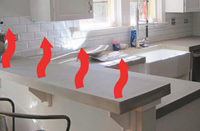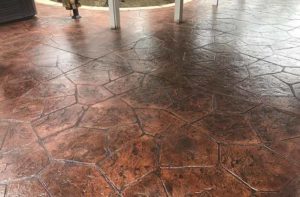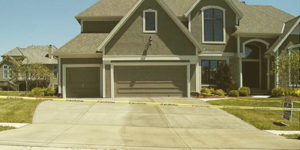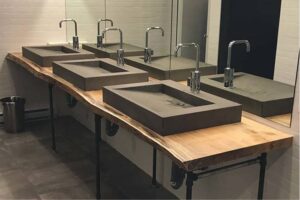Fabricators’ approaches to sealing countertops are as varied as their creative countertop designs. Here are some observations from manufacturers and artisans about how they protect the work:
“For customers who like a dynamic surface, a penetrating sealer can be as simple as mineral oil or olive oil. This surface will patina, change and evolve. Wears and spills are part of that evolution. It’s just like a butcher block – they can re-oil it whenever they want to.”
– Mike Heidebrink, Cheng Design, Berkeley, Calif.
“In my own kitchen my countertop dates back to 1988. The sealer has long since worn off. I just rub olive oil on it. That’s what I like about it. Someone who wants a synthetic material that never changes wouldn’t like it.”
– Buddy Rhodes, Buddy Rhodes Concrete Products, San Francisco
“Now that concrete counters have been around for a while, customers know better what to expect. People looking for concrete are becoming more forgiving. They are letting concrete counters be what they are.”
– Kelly Carr, Concrete Jungle Inc., Northridge, Calif.
“We start with an acrylic lacquer to pop the color. We like the color to just jump!”
– Ben Ashby, Concrete Solutions, San Diego
“Don’t oversell a customer on heat resistance. My test is, can you place a pot of boiling hot water on the surface? I find when moving a pot from a gas stove to a counter, sealers fail about half the time. It doesn’t hurt the concrete, but it wreaks havoc with the sealer. They should use a trivet, just like they would with Corian.”
– Ben Ashby
“An artisan concrete countertop is a handmade product and it will look and wear like a handmade product. Customers should think of waxing a countertop they way they take care of a floor or fine furniture.”
– Buddy Rhodes
“When I coat a table or countertop with an epoxy, pleurae, or polyaspartic, I wet-sand the coating with 1,000-grit sand paper, then buff it with heavy-grit, then fine-grit buffing compound. This rids the coating of any imperfections and makes the piece feel like a fine piece of marble. This can be very time-consuming. Fifty square feet of countertop may take two days to get perfect. This process also seems to make the piece much more scratch-resistant.”
– Rick Ogden, Rick Ogden Construction, Pryor, Okla.















